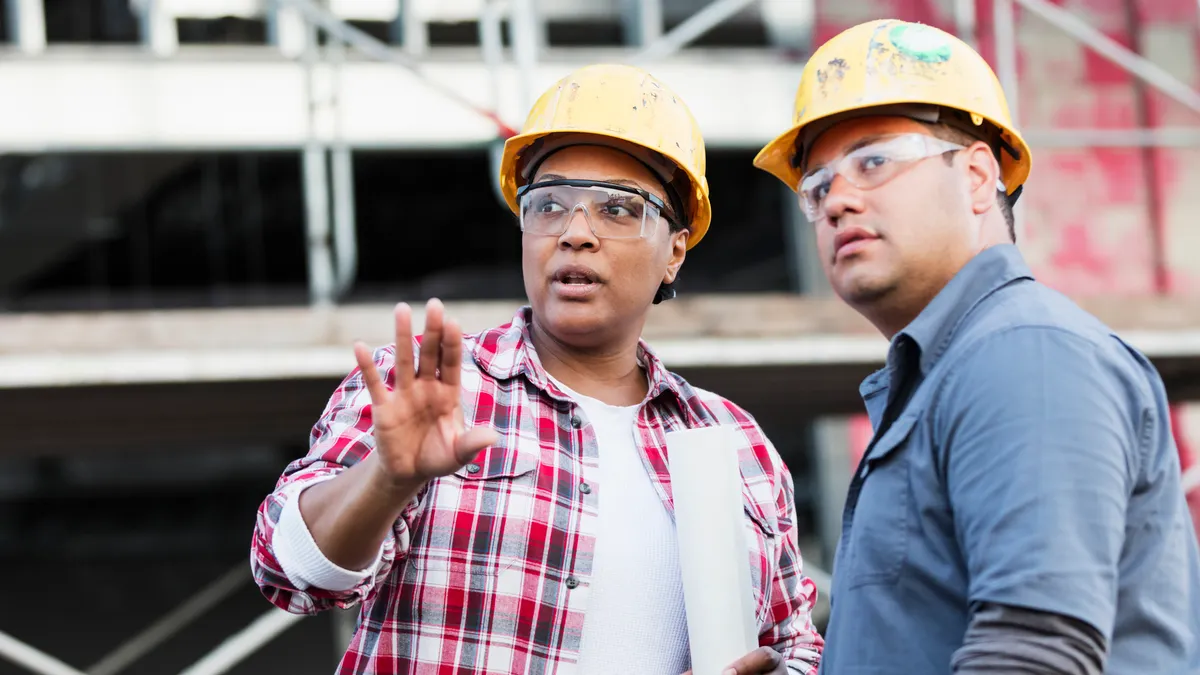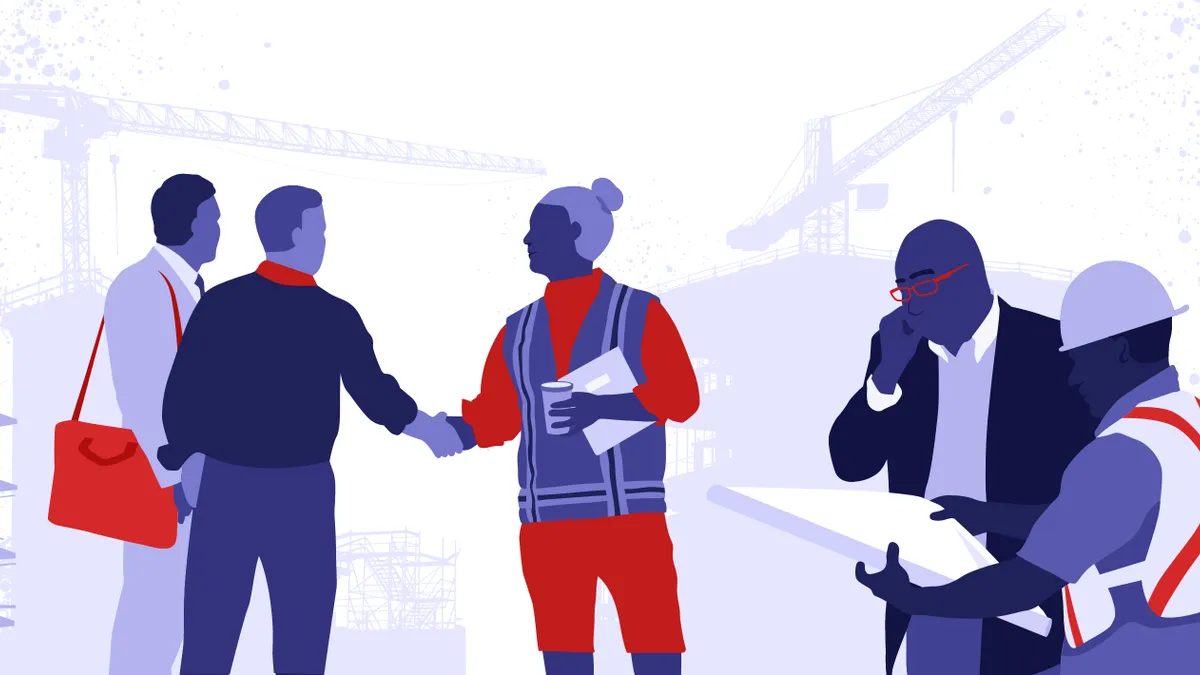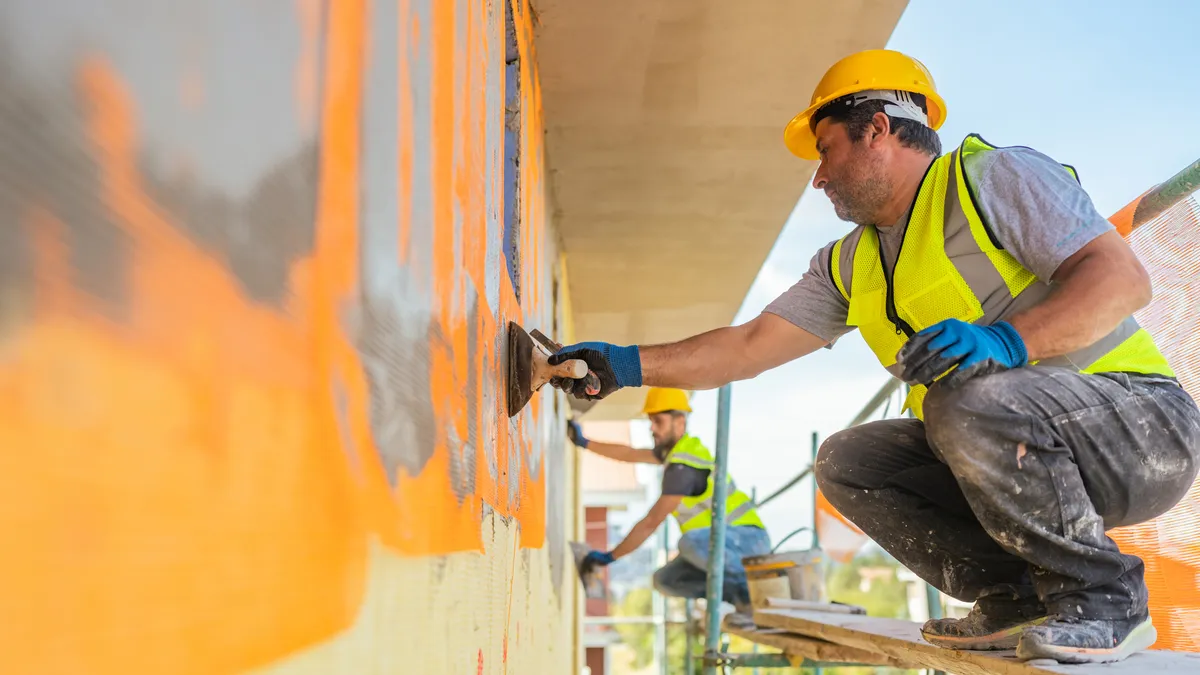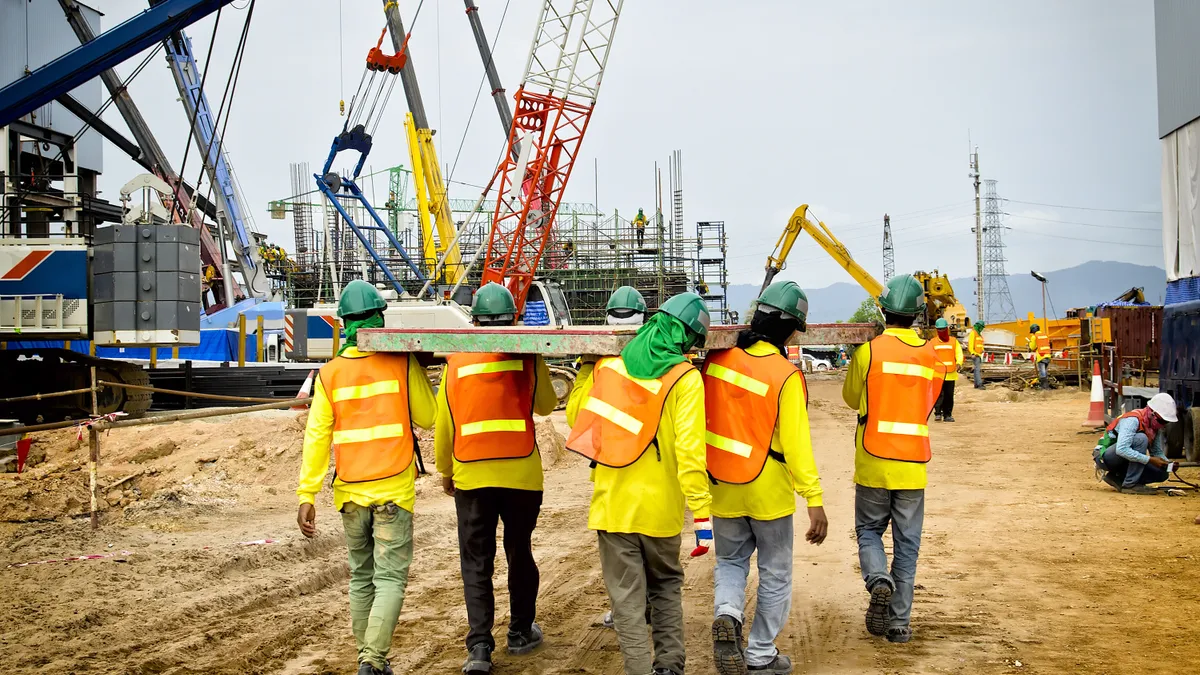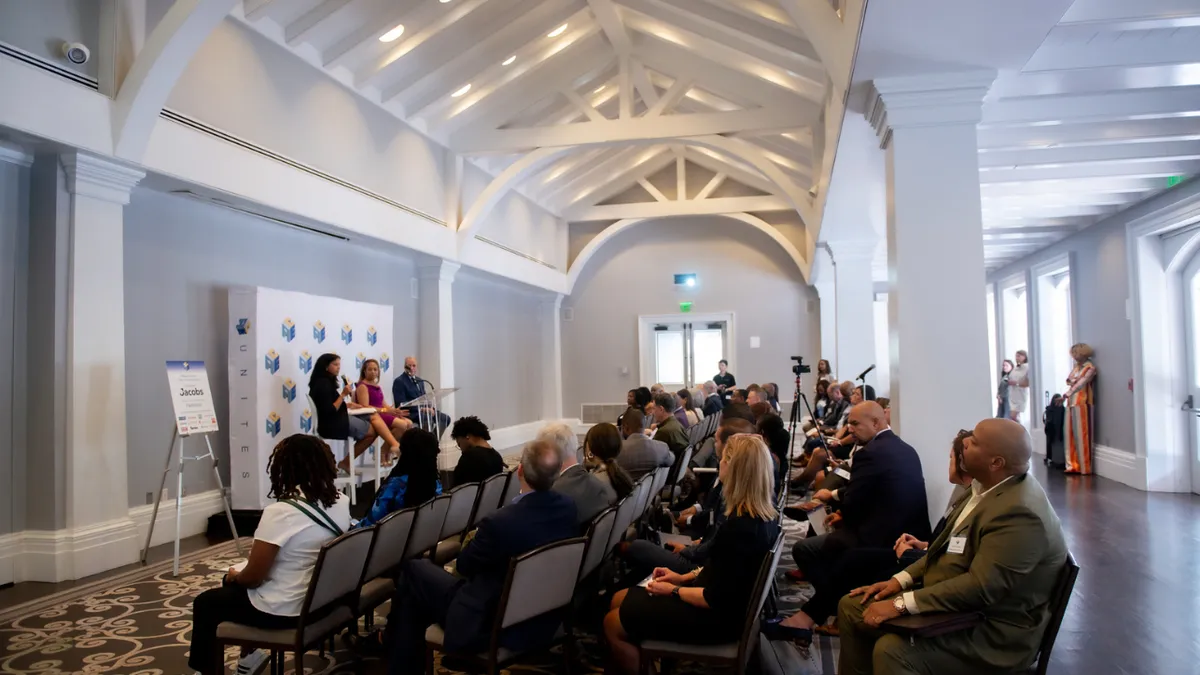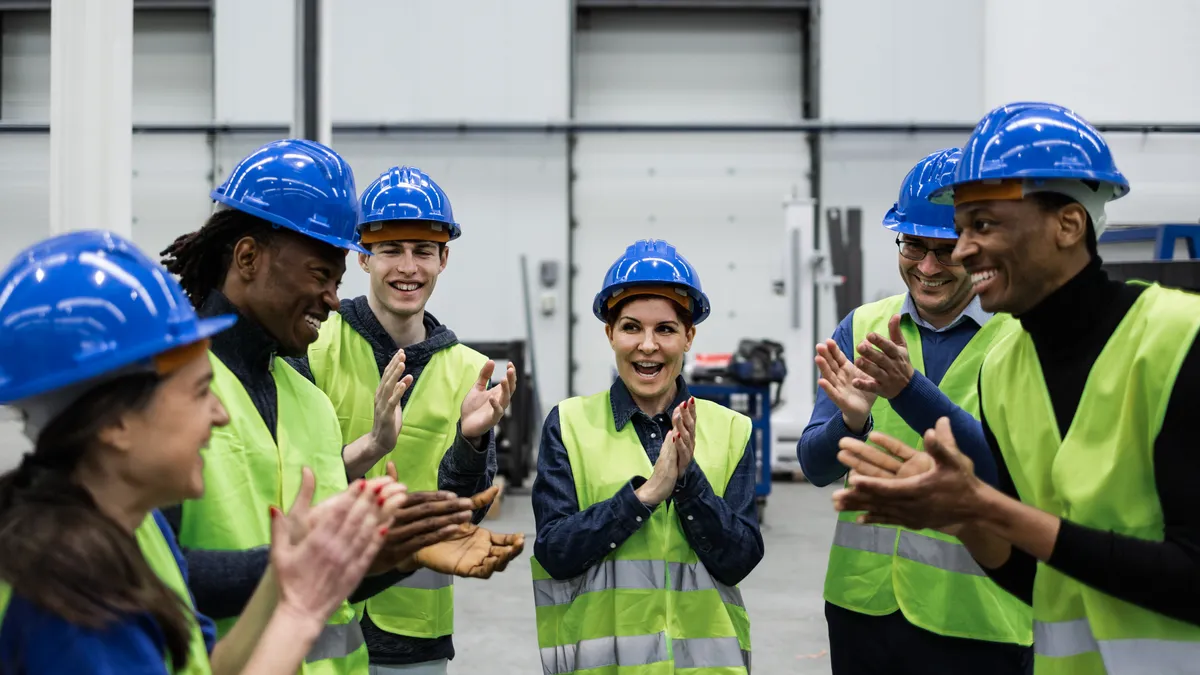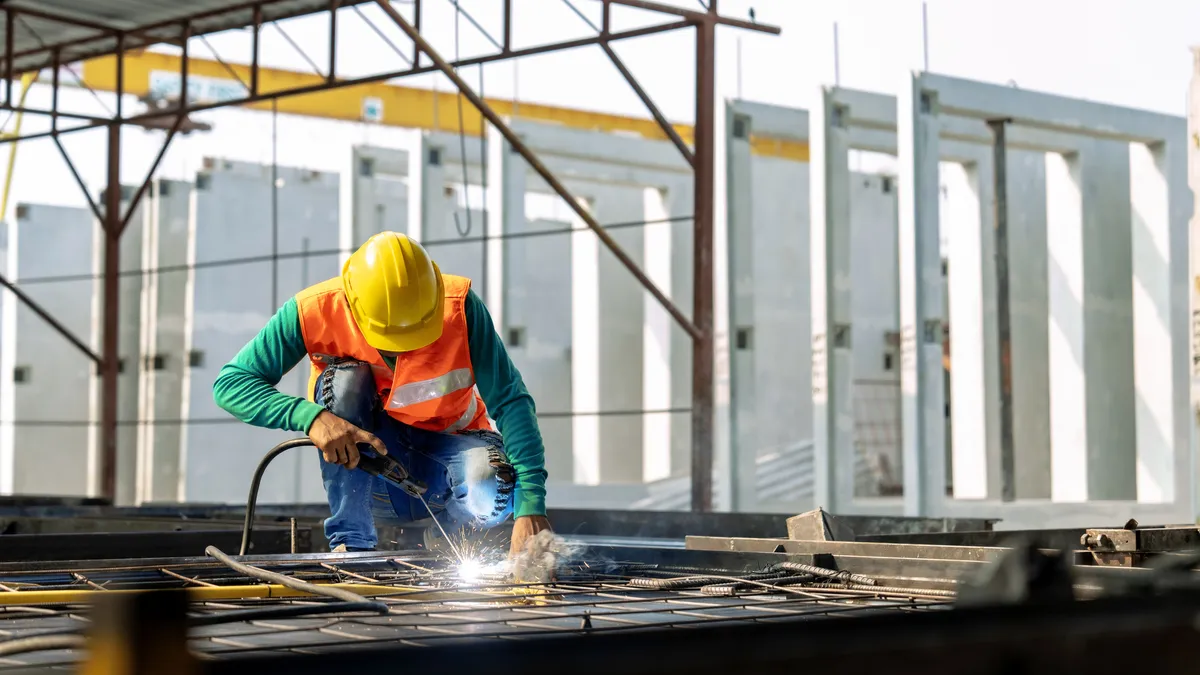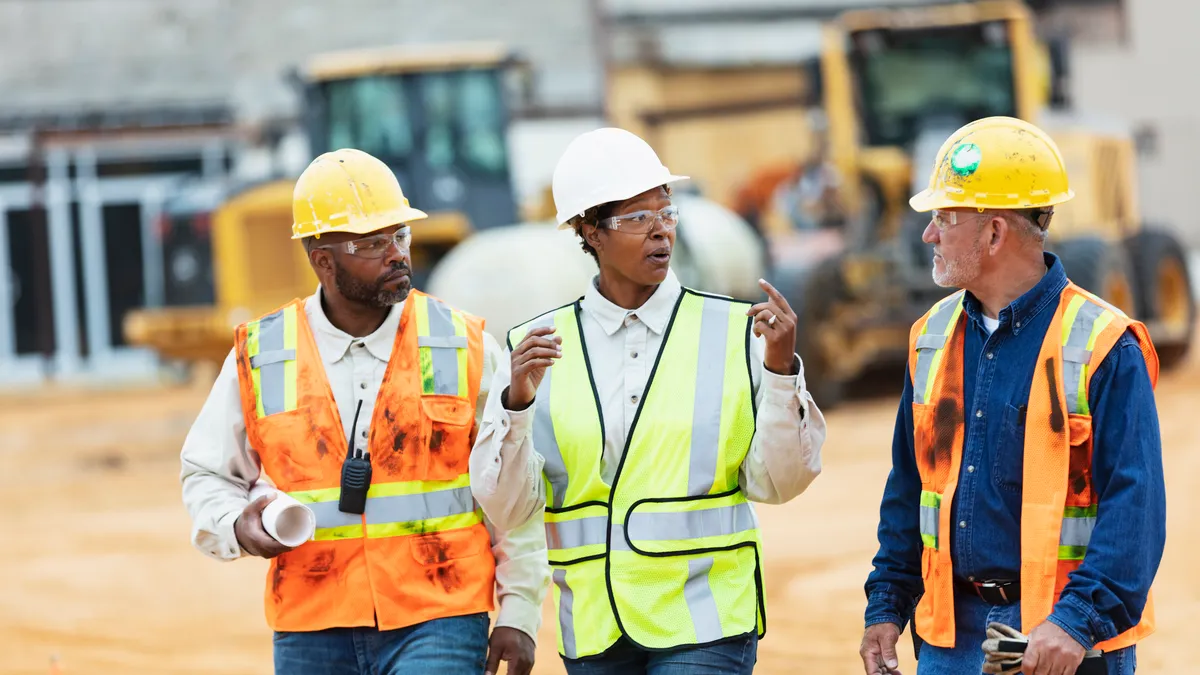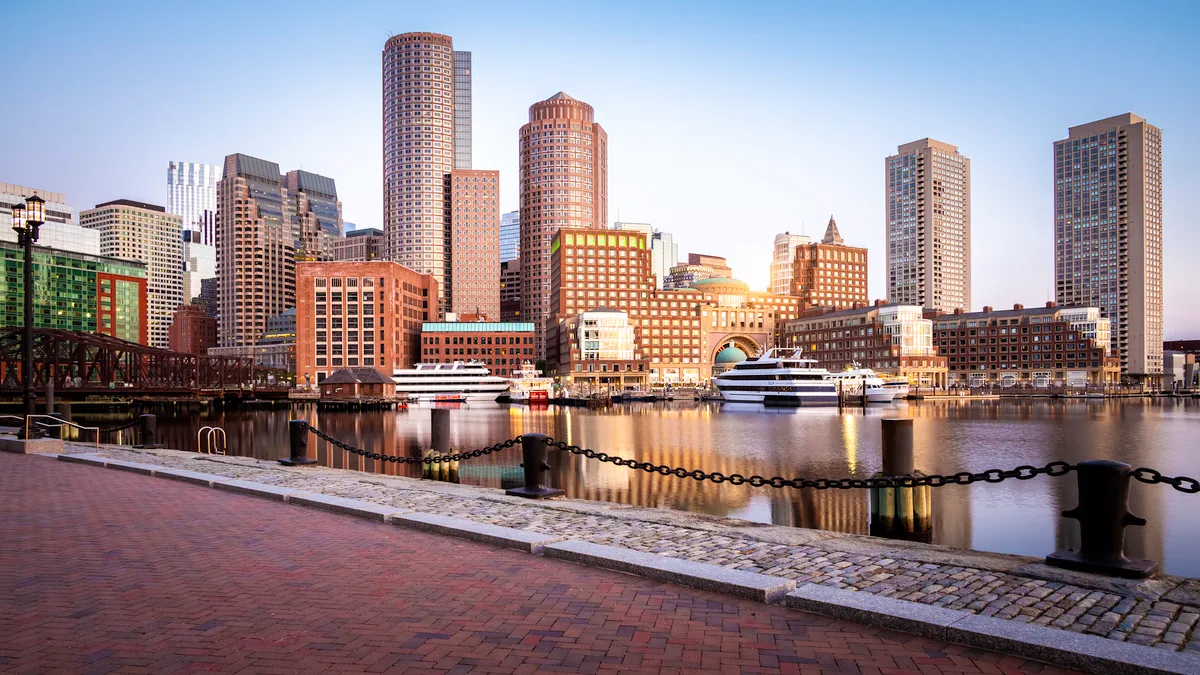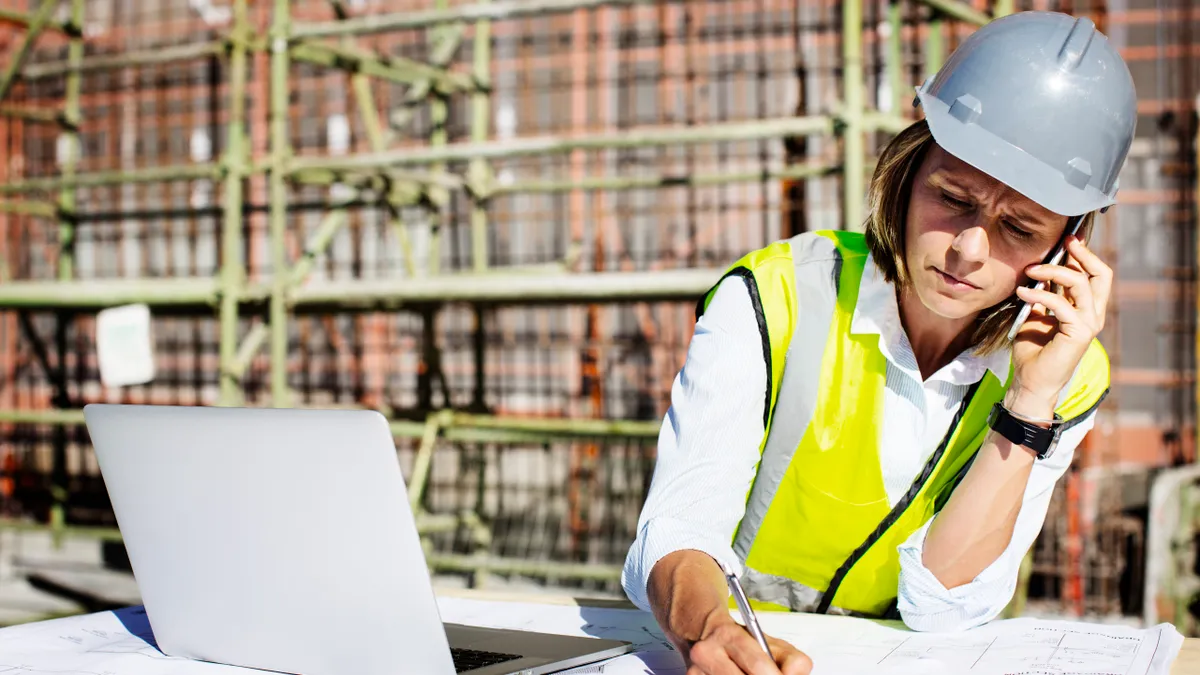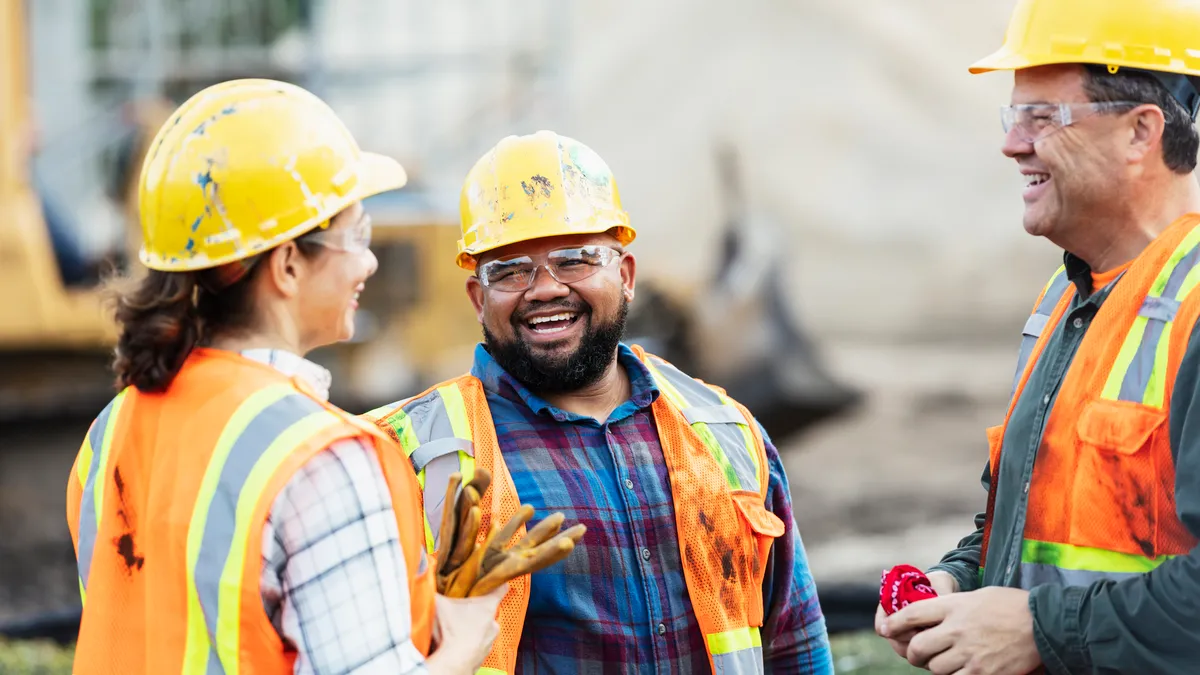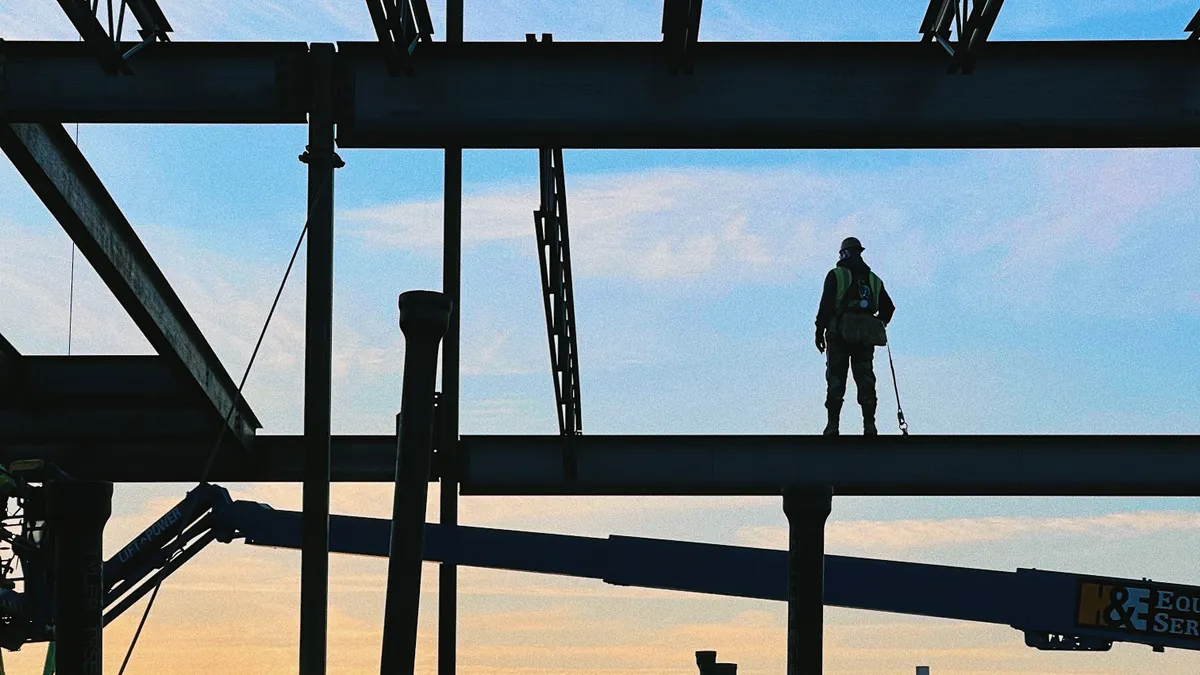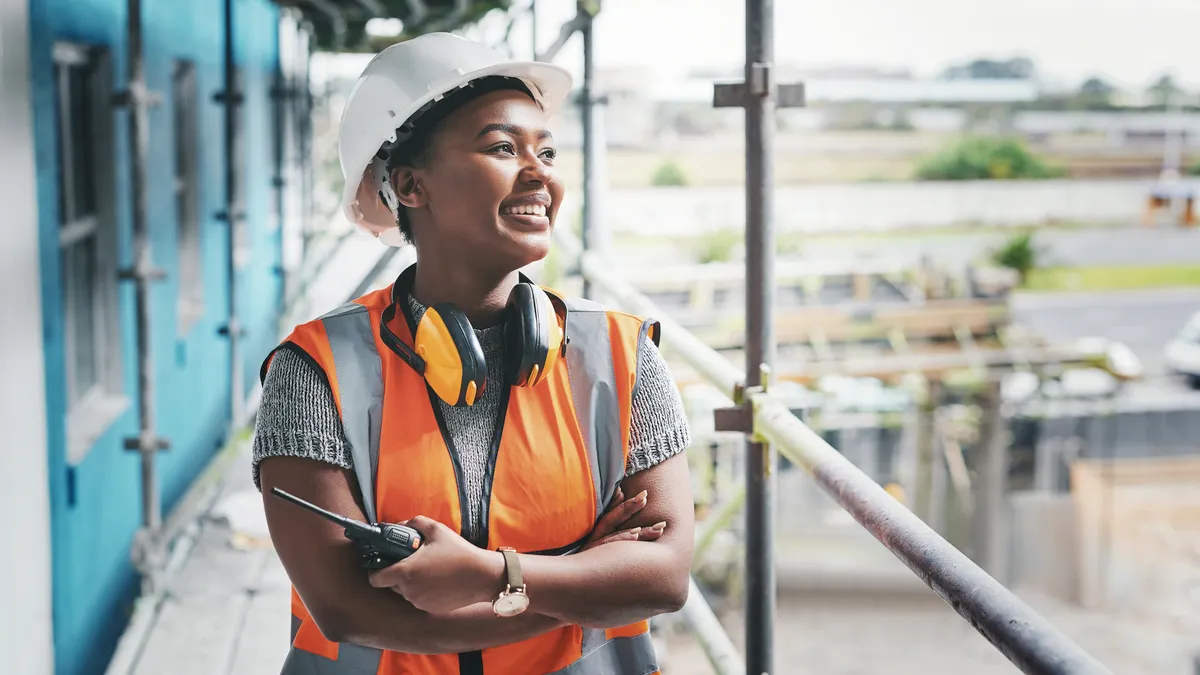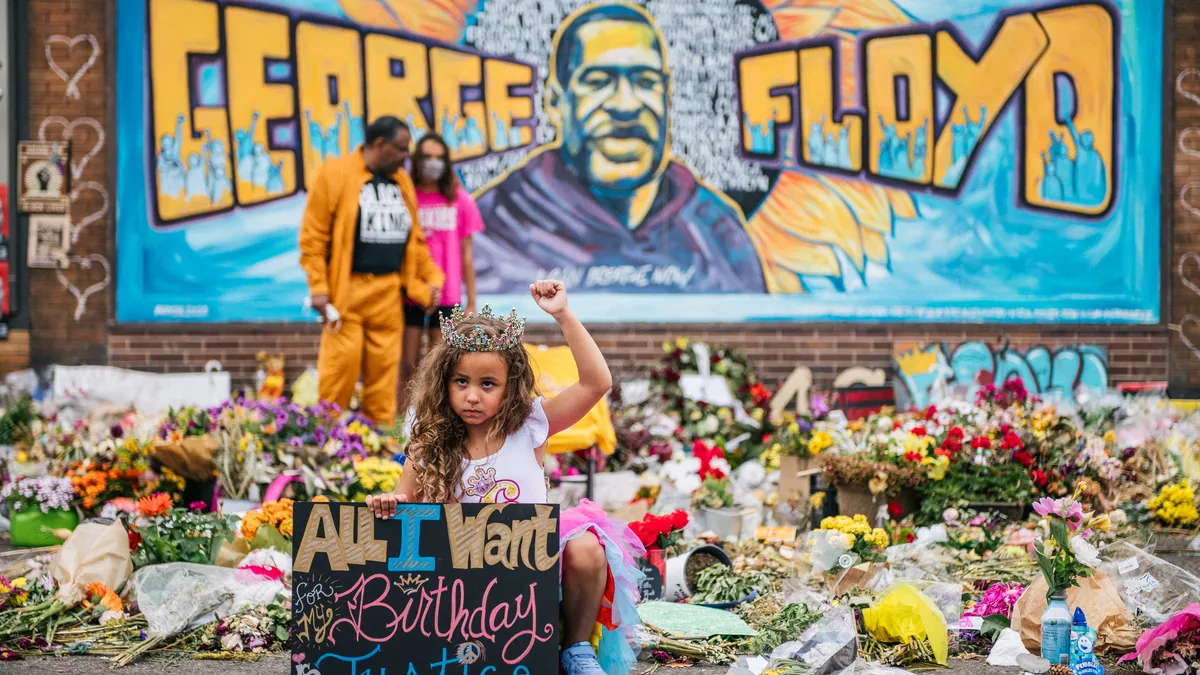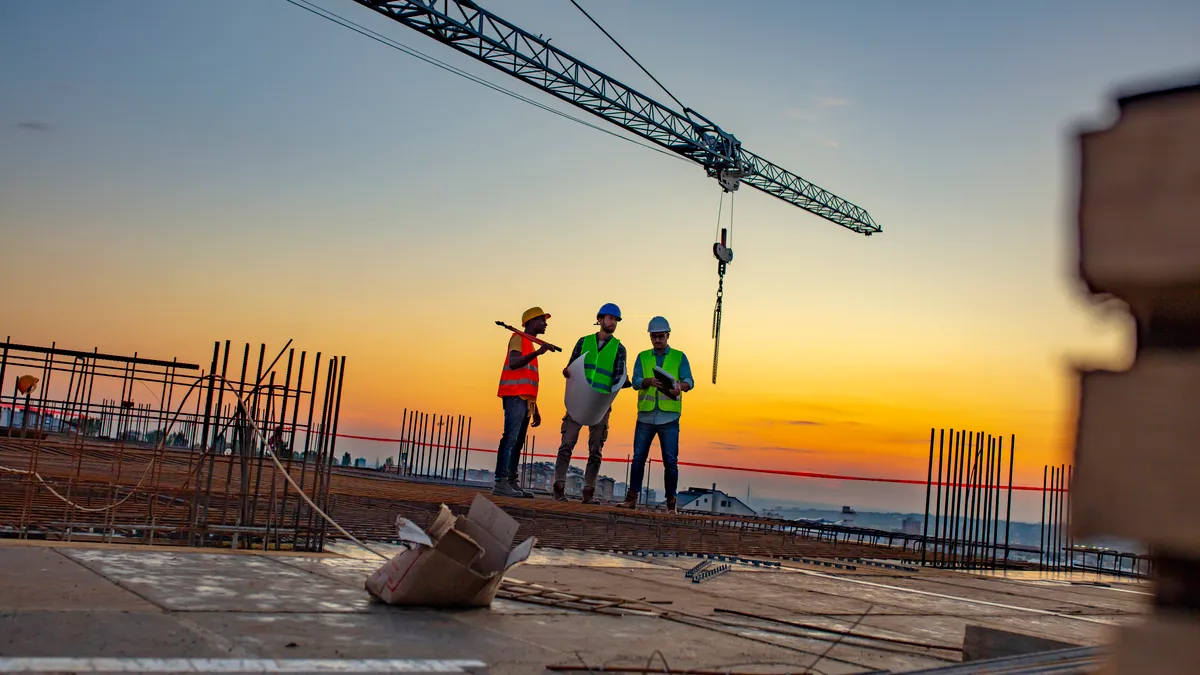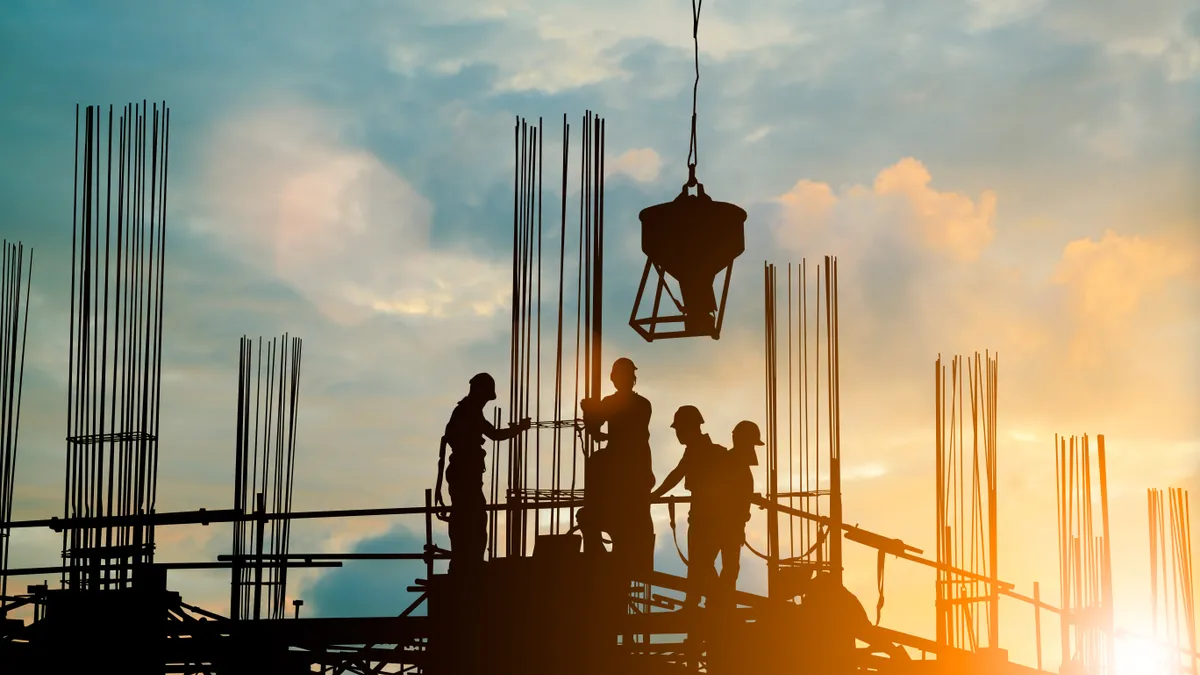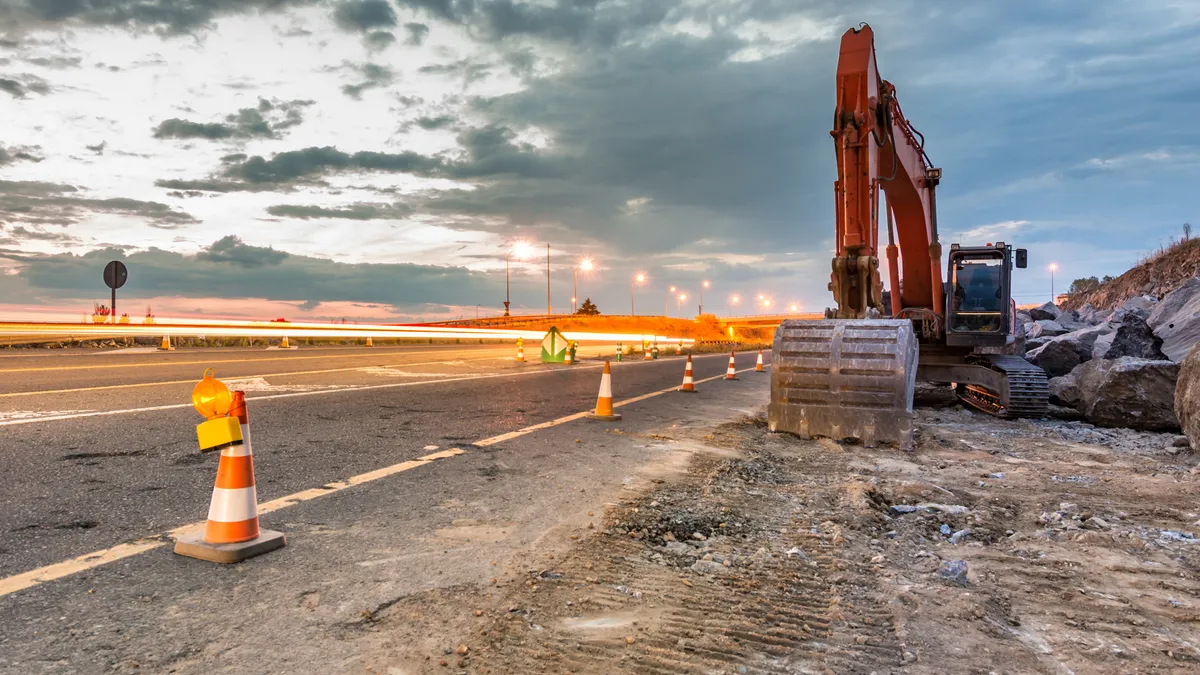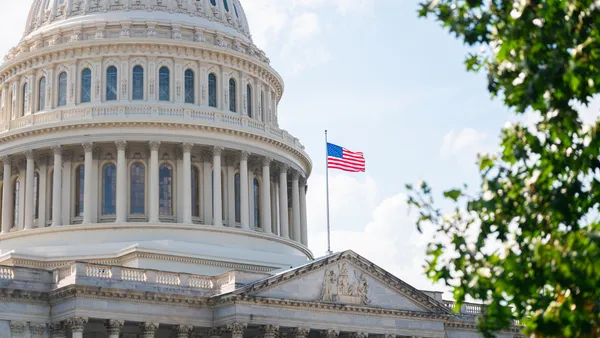Shawmut Design and Construction is anything but a White-guys-only building company.
At the Boston-based firm, 35% of employees are women — more than three times the industry average. The company has also achieved 100% pay equity between men and women in similar roles at the company.
As the fourth annual Construction Inclusion Week continues, Marianne Monte, Shawmut’s chief people and administrative officer, talks with Construction Dive about CIW’s success and the challenges that diversity, equity and inclusion efforts face today.
This interview has been edited for brevity and clarity.
CONSTRUCTION DIVE: CIW has grown quickly in terms of participation by the industry, with 80% of Top 50 firms taking part this year. To what do you attribute CIW’s success so far?
MARIANNE MONTE: There’s power in numbers, and when competitors come together as partners who need to tackle a critical industry problem together, it spurs action and change.
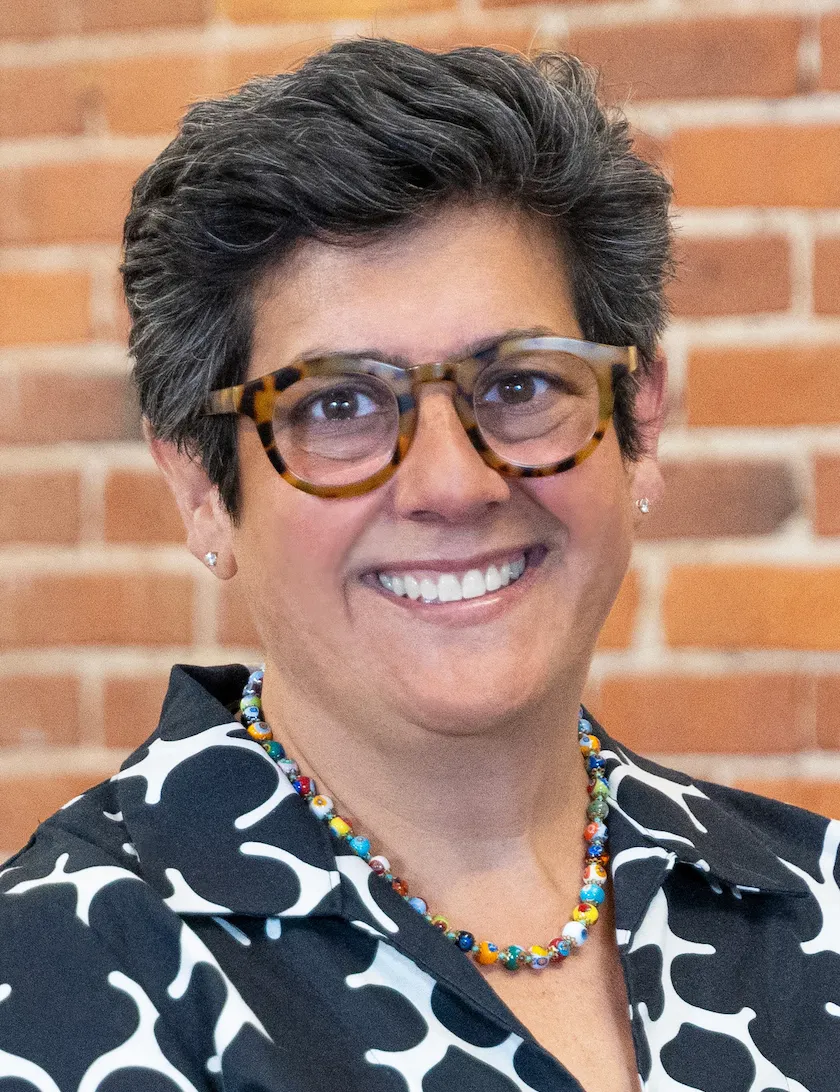
There is noise out there about companies dropping their DEI efforts. We are not in that camp. Time is a challenge for everyone, but we don’t see participation as taking away from people’s day jobs.
We see participation in the important conversations held during Construction Inclusion Week as providing tools that can be used every day on the job. That’s why it’s so important for leadership to stand behind diversity, equity and inclusion — when this work is clearly prioritized, it removes barriers and clears the way for participation.
You mention the backlash against DEI recently. Are you concerned CIW could be a passing fad?
We at Shawmut haven’t taken our foot off the gas and other firms truly committed to DEI haven’t either. Those reducing or eliminating their efforts around DEI will have a lot to catch up on.
DEI is a business imperative at Shawmut. By creating Construction Inclusion Week, the industry has demonstrated it’s a critical imperative for all firms.
I’m confident in the staying power of CIW. Safety Week launched industrywide 10 years ago and it has not slowed down.
Bias-related incidents tapered off in construction last year and earlier this year, before picking up again in recent months. Why do you think this is happening now? How can construction companies do more to prevent these incidents from happening?
We are living in a very charged time. There is a lot going on in the world and in people’s personal lives.
What we need to do as general contractors is create jobsites and offices where people feel safe, respected and supported.
While it may feel daunting to have conversations around topics like discrimination, mental health and substance use, Shawmut has seen firsthand the value of those difficult discussions and the powerful support system it creates.
We’ve had trade partners open up about their own struggles in front of an entire field team following our Culture of Care Toolbox Talk, and that vulnerability and discussion created a very important first step in building a truly inclusive workplace where people feel safety and a sense of belonging.
Construction has a reputation of being overwhelmingly White and male. How is CIW more than just marketing and window dressing from the industry?
While it’s one week of the year, it provides the tools and resources for firms to take actionable steps in increasing diversity, equity and inclusion within their own walls and jobsites year-round. We’re creating a blueprint for the industry by having discussions and sharing both successes and challenges with each other.
What’s telling and promising is the variety of firms who have joined Construction Inclusion Week, from trades to industry organizations to manufacturers. At Shawmut we don’t look at this as a one-week event — it’s woven into the fabric of everyday life here.
CIW has been an industry-driven initiative. Yet the EEOC has also focused on construction from a regulatory perspective, saying construction sticks out from other industries. Why has self-governance not been enough?
To drive change in any arena, accountability is key, which is why Commitment & Accountability were the theme for day one of Construction Inclusion Week.
Compared to other industries, construction started on its heels when it comes to DEI. What CIW is doing is uniting everyone and establishing a baseline that will allow for meaningful, sustained change and action to advance diversity and inclusion.
In terms of government action, Shawmut signed on to the U.S. Department of Commerce’s Million Women in Construction Community Pledge, one of the first signatory construction firms to do so, committing to increase women’s access to training, jobs and leadership opportunities.
If companies or workers have one takeaway from CIW 2024, what should it be?
That there’s progress in taking small steps and there is no hierarchy when it comes to this work.
Businesses only perform as well as their employees. When people feel respected and included, they’re more engaged, productive and can meet their highest potential.
This, in turn, drives safety, talent retention and recruitment. These are all measurable values of inclusivity — the importance of DEI work and CIW cannot be stressed enough.



